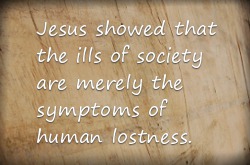The Bible, Government, and Social Justice, Part 3
Karl Marx and Friedrich Engels provide a helpful case study in the inherent limitations of government. Their landmark publication, The Communist Manifesto (hereafter, TCM), was first printed in 1848, and offered to some the hope they had been desperately seeking. Before asserting the solution, though, the TCM delineated with specificity what its authors believed to be the root problem. All of societal history is ongoing class struggle, with oppressor and oppressed standing against one another. This has taken place throughout four epochs of world history, all representing the struggle between oppressor and oppressed: (1) primitive and communal, (2) slave, (3) feudal, and (4) capitalist. TCM made the case for how a fifth era, a socialist and communist epoch, could right the wrongs of societal history. At the time of TCM’s writing, the world advanced deep into the fourth (capitalist) epoch, an era in which the ills dominating the previous ages were coming to a climax. It was the right time, thought Marx and Engels, for the working class of the world (the proletariat, the oppressed) to unite and cast of the shackles of the ruling class (the bourgeoisie, the oppressors). The goal was the “formation of the proletariat into a class, overthrow of the bourgeois supremacy, conquest of political power by the proletariat.”1
 Read parts
Read parts  Read
Read 
Discussion